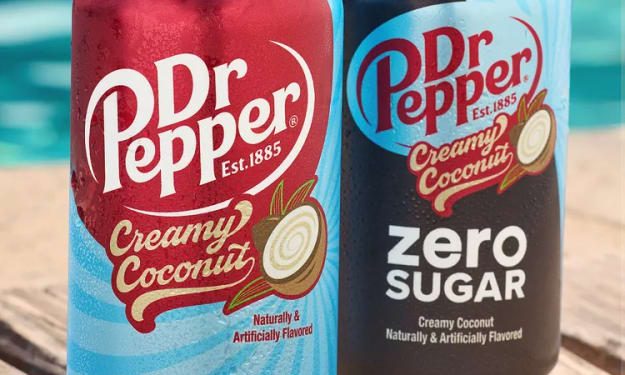Reverse Trick-or-Treating: Giving Provides Rewards in Return
A Lesson on Being Gracious

As we ventured down the hall to physical therapy, Kari held a leaf shaped bowl filled with candy – resistantly. Halloween decorations adorned the walls and some of the staff dressed in costumes. We decided to reverse trick-or-treat. Truthfully, I hatched the idea; Kari scowled when I handed her the bowl, “No, that’s stupid.” Any other time, a rebuke would have labeled her statement “bad-mannered” but with her vocabulary limited by the stroke, she responded with blunt abruptness. I understood her hesitancy. Never one to draw attention to herself, she liked to exist in the shadows, therefore; this activity resided WAY outside her comfort zone.
I silently questioned my decision to instigate this adventure, wondering if it was such a clever idea. But when she offered candy to the nurse, that thought vanished. Kari presented the commercially wrapped chocolates with a forced smile knowing rudeness was not an option. Cheerily, the nurse participated in our holiday celebration as she described her children’s costumes and explained they trick-and-treated with the neighbors since she worked the night shift. She sifted through a few pieces and withdrew a packet of M&Ms.
Candy is only one element of Halloween; it ties us to our memories.
We turned the corner and offered some sweet treats to patients as we passed. Some we knew from our extended stay; others, strangers, instantly joined our hospital family. All smiled courteously, took candy and expressed thanks either with words or a smile. In the outpatient physical therapy waiting room, sat an elderly couple on two hard back chairs. I assumed them husband and wife and deduced the man waited for his appointment since he held a cane and an expression of desire to be somewhere, any place else.
Kari offered them candy by saying, “Want some carrots?”
Since stroke patients inhabited the halls, no explanation was necessary because everyone knew her meaning and why the words came out wrong. The kindhearted wife simply picked through the selection, withdrew a piece (of candy not carrots) and said, “Thank you.”
The gentleman’s melancholy eyes looked up from the floor and he said, “No.” Just before we turned away, his eyes met Kari’s triggering a smirk and his face softened compassionately. Leaning towards the bowl, he cleared his throat, “Well, maybe I will.” His hand released the cane and searched until it found a Reese’s Peanut Butter Cup. We heard a polite, gruff voice say, “Happy Halloween.”
Kari’s jumbled, inaccurate response communicated a clear message of gratitude at his acceptance of her offering. Every person she encountered became supporters in her fight, and she in theirs. In this environment where individuals struggled with their own disability, the simple, edible gifts created a support system that reinforced them for the next battle.
When we entered the physical therapy room more soldiers joined our army.
A friendly, young woman with purple hair, walked up a short flight of stairs; indulgent therapists on either side clutched the wide cloth belt around her waist providing stability. Her hand wrapped around a Snickers without releasing the handrail with the other. Each therapist tucked a chocolate in their shirt pockets.
A decorous, elderly lady rode a stationary bike at a slow, steady pace as if she competed in the final stages of a marathon, exerting enough energy to propel her around the world if desire transferred to fuel. Pausing, she cordially accepted a piece and continued her journey toward her recovery. Mentally, I noted that each quickly returned to their exercises to optimize time in the therapy room.
On the exercise table laid a chivalrous middle-aged man with one leg in the air, his second leg absent. His therapist and he each took a bar and the therapist returned for a second before we exited the room.
Each patient not only welcomed a piece of candy but returned to their task a little less stressed and a little more determined.
Daily routines developed with similar activities at varying times. Gratefully, patients labored to complete tasks they once performed unconsciously as they learned to adapt to their disabilities. They practiced how to walk, trained their arms to reach, grab, and release, and through repetition reacquired vanished vocabulary. Surprise and amazement held me dumbfounded as each person responded with kindness and acceptance to treatment. Nobody complained or grumbled. Their determination communicated their hope for a normal life.
Before, I thought gracious synonymous with thankful. Now, I recognize it as so much more.
When my mother was alive, she experienced a lot of health issues but never lost her sense of humor. She accepted the good days with the bad. And she never complained. Below is a poem that she shared, and I filed away.
I’M FINE, THANK YOU (author unknown)
There is nothing the matter with me.
I’m as healthy as I can be.
I have arthritis in both my knees
And when I talk, I talk with a wheeze.
My pulse is weak, and my blood is thin
But I’m awfully well for the shape I’m in.
Arch supports I have for my feet
Or I wouldn’t be able to be on the street.
Sleep is denied me night after night,
But every morning I find I’m all right.
My memory is failing, my head’s in a spin
But I’m awfully well for the shape I’m in.
The moral is this, as my tale I unfold,
That for you and me who are growing old,
It’s better to say “I’m fine” with a grin
Than to let folks know the shape we are in.
Through her acceptance of events, people, and problems, Mamma modeled grace. We used to say she wouldn’t say, “shit” if her mouth was full of it. She welcomed the good with the bad. Mom grew older gracefully.
Saint Luke’s Rehabilitation Hospital’s staff (nurses, CNAs, doctors, therapists, secretaries, food and cleaning service, everyone we encountered) exemplified gracious behavior through actions, words, and attitude. In return, patients and visitors graciously united to win the individual battles each confronted.
When we returned to our room after reverse trick-or-treating, exhaustion appeared on Kari’s face, but her eyes held joy and her mouth curved into a smile. With grace in her heart, she laid on her bed to sleep; ready to continue the healing process – later.
My 33-year-old daughter had a stroke on September 29, 2019. This story shares one of the lessons learned during our time in the hospital. Earlier, I shared My Daughter’s Stroke: A Lesson On Accepting Help.
About the Creator
Brenda Mahler
Travel
Writing Lessons
Memoirs
Poetry
Books AVAILABLE ON AMAZON.
* Lockers Speak: Voices from America's Youth
* Understanding the Power Not Yet shares Kari’s story following a stroke at 33.
* Live a Satisfying Life By Doing it Doggy Style explains how humans can life to the fullest.






Comments
There are no comments for this story
Be the first to respond and start the conversation.